public class sss {
@SuppressWarnings({ "rawtypes", "unchecked", "unused" })
public static void main(String[] args) {
ArrayList1<String> aList=new ArrayList1<String>();
aList.add("a");
aList.add("b");
aList.add("c");
aList.add("d");
aList.add("e");
ArrayList1<String> aList2 = (ArrayList1<String>) aList.clone();
Iterator i = aList.listIterator(3);//从3开始,只有2个元素
while(i.hasNext()) {
System.out.println(i.next());
}
Iterator i1 = aList.iterator();//全部元素
while(i1.hasNext()) {
System.out.println(i1.next());
}
List i2 = aList.subList(2,4);//[c, d],包头不包尾。i2是SubList类型。
i2.add(0,"99");//aList也添加了
Iterator kk = i2.iterator();
while(kk.hasNext()) {//99 c d
System.out.println(kk.next());
}
ListIterator<String> lll = i2.listIterator(0);
while(lll.hasNext()) {//99 c d
System.out.println(lll.next());
}
}
}
//List list = Collections.synchronizedList(new ArrayList(...));
//遍历时候有快速失败。
public class ArrayList1<E> extends AbstractList1<E> implements List<E>, RandomAccess, Cloneable, java.io.Serializable{
private static final long serialVersionUID = 8683452581122892189L;
private static final int DEFAULT_CAPACITY = 10;
private static final Object[] EMPTY_ELEMENTDATA = {};//空数组
private static final Object[] DEFAULTCAPACITY_EMPTY_ELEMENTDATA = {};//空数组
transient Object[] elementData;
private int size;
public ArrayList1(int initialCapacity) {
if (initialCapacity > 0) {
this.elementData = new Object[initialCapacity];
} else if (initialCapacity == 0) {
this.elementData = EMPTY_ELEMENTDATA;//大小是0的时候,空数组
} else {
throw new IllegalArgumentException("Illegal Capacity: "+ initialCapacity);
}
}
public ArrayList1() {
this.elementData = DEFAULTCAPACITY_EMPTY_ELEMENTDATA;//构造空数组
}
public ArrayList1(Collection<? extends E> c) {//Collection集合是list,set,queue
elementData = c.toArray();//一个个元素添加进数组
if ((size = elementData.length) != 0) {
if (elementData.getClass() != Object[].class)
elementData = Arrays.copyOf(elementData, size, Object[].class);
} else {
this.elementData = EMPTY_ELEMENTDATA;
}
}
public void trimToSize() {
modCount++;
if (size < elementData.length) {//size小于数组的大小,调整为size大小
elementData = (size == 0) ? EMPTY_ELEMENTDATA : Arrays.copyOf(elementData, size);
}
}
public void ensureCapacity(int minCapacity) {
int minExpand = (elementData != DEFAULTCAPACITY_EMPTY_ELEMENTDATA) ? 0 : DEFAULT_CAPACITY;
if (minCapacity > minExpand) {
ensureExplicitCapacity(minCapacity);
}
}
private static int calculateCapacity(Object[] elementData, int minCapacity) {
if (elementData == DEFAULTCAPACITY_EMPTY_ELEMENTDATA) {
return Math.max(DEFAULT_CAPACITY, minCapacity);
}
return minCapacity;
}
private void ensureCapacityInternal(int minCapacity) {
ensureExplicitCapacity(calculateCapacity(elementData, minCapacity));
}
private void ensureExplicitCapacity(int minCapacity) {
modCount++;
if (minCapacity - elementData.length > 0)
grow(minCapacity);
}
//最大大小,头字段8个字节。
private static final int MAX_ARRAY_SIZE = Integer.MAX_VALUE - 8;
private void grow(int minCapacity) {
int oldCapacity = elementData.length;
int newCapacity = oldCapacity + (oldCapacity >> 1);//1.5倍旧容量
if (newCapacity - minCapacity < 0)
newCapacity = minCapacity;
if (newCapacity - MAX_ARRAY_SIZE > 0)
newCapacity = hugeCapacity(minCapacity);
elementData = Arrays.copyOf(elementData, newCapacity);
}
private static int hugeCapacity(int minCapacity) {
if (minCapacity < 0)
throw new OutOfMemoryError();
return (minCapacity > MAX_ARRAY_SIZE) ? Integer.MAX_VALUE : MAX_ARRAY_SIZE;
}
public int size() {
return size;
}
public boolean isEmpty() {
return size == 0;
}
public boolean contains(Object o) {
return indexOf(o) >= 0;
}
public int indexOf(Object o) {
if (o == null) {
for (int i = 0; i < size; i++)
if (elementData[i]==null)
return i;
} else {
for (int i = 0; i < size; i++)
if (o.equals(elementData[i]))
return i;
}
return -1;
}
public int lastIndexOf(Object o) {
if (o == null) {
for (int i = size-1; i >= 0; i--)
if (elementData[i]==null)
return i;
} else {
for (int i = size-1; i >= 0; i--)
if (o.equals(elementData[i]))
return i;
}
return -1;
}
public Object clone() {
try {
ArrayList1<?> v = (ArrayList1<?>) super.clone();
System.out.println(elementData);//5315b42e
System.out.println(v.elementData);//5315b42e
System.out.println(EMPTY_ELEMENTDATA);//2ef9b8bc
System.out.println(v.EMPTY_ELEMENTDATA);//2ef9b8bc
System.out.println(DEFAULTCAPACITY_EMPTY_ELEMENTDATA);//5d624da6
System.out.println(v.DEFAULTCAPACITY_EMPTY_ELEMENTDATA);//5d624da6
v.elementData = Arrays.copyOf(elementData, size);
v.modCount = 0;
System.out.println("-----super.clone()后的属性地址完全一样,重新设置值之后,属性地址改了-----");
System.out.println(elementData);//5315b42e
System.out.println(v.elementData);//1e67b872
System.out.println(EMPTY_ELEMENTDATA);//1e67b872
System.out.println(v.EMPTY_ELEMENTDATA);//2ef9b8bc
System.out.println(DEFAULTCAPACITY_EMPTY_ELEMENTDATA);//5d624da6
System.out.println(v.DEFAULTCAPACITY_EMPTY_ELEMENTDATA);//5d624da6
return v;
} catch (CloneNotSupportedException e) {
throw new InternalError(e);
}
}
public Object[] toArray() {
return Arrays.copyOf(elementData, size);
}
@SuppressWarnings("unchecked")
public <T> T[] toArray(T[] a) {
if (a.length < size)
return (T[]) Arrays.copyOf(elementData, size, a.getClass());//扩容成size
System.arraycopy(elementData, 0, a, 0, size);//elementData的内容复制给a,a后面的元素还是用自己的。
if (a.length > size)
a[size] = null;
return a;
}
E elementData(int index) {
return (E) elementData[index];
}
public E get(int index) {
rangeCheck(index);
return elementData(index);
}
public E set(int index, E element) {
rangeCheck(index);
E oldValue = elementData(index);
elementData[index] = element;
return oldValue;
}
public boolean add(E e) {
ensureCapacityInternal(size + 1); // Increments modCount!!
elementData[size++] = e;
return true;
}
public void add(int index, E element) {
rangeCheckForAdd(index);
ensureCapacityInternal(size + 1); // Increments modCount!!
System.arraycopy(elementData, index, elementData, index + 1, size - index);
elementData[index] = element;
size++;
}
public E remove(int index) {
rangeCheck(index);
modCount++;
E oldValue = elementData(index);
int numMoved = size - index - 1;
if (numMoved > 0)
System.arraycopy(elementData, index+1, elementData, index, numMoved);
elementData[--size] = null;
return oldValue;
}
public boolean remove(Object o) {
if (o == null) {
for (int index = 0; index < size; index++)
if (elementData[index] == null) {
fastRemove(index);
return true;
}
} else {
for (int index = 0; index < size; index++)
if (o.equals(elementData[index])) {
fastRemove(index);
return true;
}
}
return false;
}
private void fastRemove(int index) {
modCount++;
int numMoved = size - index - 1;
if (numMoved > 0)
System.arraycopy(elementData, index+1, elementData, index, numMoved);
elementData[--size] = null; // clear to let GC do its work
}
public void clear() {
modCount++;
for (int i = 0; i < size; i++)
elementData[i] = null;
size = 0;
}
public boolean addAll(Collection<? extends E> c) {
Object[] a = c.toArray();
int numNew = a.length;
ensureCapacityInternal(size + numNew); // Increments modCount
System.arraycopy(a, 0, elementData, size, numNew);
size += numNew;
return numNew != 0;
}
public boolean addAll(int index, Collection<? extends E> c) {
rangeCheckForAdd(index);
Object[] a = c.toArray();
int numNew = a.length;
ensureCapacityInternal(size + numNew); // Increments modCount
int numMoved = size - index;
if (numMoved > 0)
System.arraycopy(elementData, index, elementData, index + numNew, numMoved);
System.arraycopy(a, 0, elementData, index, numNew);
size += numNew;
return numNew != 0;
}
public void removeRange(int fromIndex, int toIndex) {
modCount++;
int numMoved = size - toIndex;
System.arraycopy(elementData, toIndex, elementData, fromIndex, numMoved);
int newSize = size - (toIndex-fromIndex);
for (int i = newSize; i < size; i++) {
elementData[i] = null;
}
size = newSize;
}
private void rangeCheck(int index) {
if (index >= size)
throw new IndexOutOfBoundsException(outOfBoundsMsg(index));
}
private void rangeCheckForAdd(int index) {
if (index > size || index < 0)
throw new IndexOutOfBoundsException(outOfBoundsMsg(index));
}
private String outOfBoundsMsg(int index) {
return "Index: "+index+", Size: "+size;
}
public boolean removeAll(Collection<?> c) {
Objects.requireNonNull(c);
return batchRemove(c, false);
}
public boolean retainAll(Collection<?> c) {
Objects.requireNonNull(c);
return batchRemove(c, true);
}
private boolean batchRemove(Collection<?> c, boolean complement) {
final Object[] elementData = this.elementData;
int r = 0, w = 0;//2个指针
boolean modified = false;
try {
for (; r < size; r++)//r=size退出·
if (c.contains(elementData[r]) == complement)//complement = false不包含保留包含不保留,就是删除
//complement = true包含保留不包含不保留,就是删除
elementData[w++] = elementData[r];//执行这句就是保留r。不执行就是不管,是删除。
} finally {
// even if c.contains() throws.
if (r != size) {//r=size正常退出,r!=size就是抛出异常了。
//抛出异常时候,r是正准备比较的位置,w是下一个要放的位置。
//r位置开始拷贝到w位置,取的时候包括r一直到最后,放的时候包括w。
System.arraycopy(elementData, r, elementData, w, size - r);
w += size - r;//w指向复制后元素的最末尾元素的下一个元素。
}
if (w != size) {//清除w及之后的元素。
// clear to let GC do its work
for (int i = w; i < size; i++)
elementData[i] = null;
modCount += size - w;//从下标w到下标size-1,有size-w个元素。
size = w;//w是非空元素的下一个元素
modified = true;
}
}
return modified;
}
private void writeObject(java.io.ObjectOutputStream s)
throws java.io.IOException{
// Write out element count, and any hidden stuff
int expectedModCount = modCount;
s.defaultWriteObject();// 获取数组元素的Class信息
// Write out size as capacity for behavioural compatibility with clone()
s.writeInt(size);
// Write out all elements in the proper order.
for (int i=0; i<size; i++) {
s.writeObject(elementData[i]);
}
if (modCount != expectedModCount) {
throw new ConcurrentModificationException();
}
}
private void readObject(java.io.ObjectInputStream s)
throws java.io.IOException, ClassNotFoundException {
elementData = EMPTY_ELEMENTDATA;
// Read in size, and any hidden stuff
s.defaultReadObject();
// Read in capacity
s.readInt(); // ignored
if (size > 0) {
// be like clone(), allocate array based upon size not capacity
int capacity = calculateCapacity(elementData, size);
SharedSecrets.getJavaOISAccess().checkArray(s, Object[].class, capacity);
ensureCapacityInternal(size);
Object[] a = elementData;
// Read in all elements in the proper order.
for (int i=0; i<size; i++) {
a[i] = s.readObject();
}
}
}
public ListIterator<E> listIterator(int index) {
if (index < 0 || index > size)
throw new IndexOutOfBoundsException("Index: "+index);
return new ListItr(index);//从index开始返回集合
}
public ListIterator<E> listIterator() {
return new ListItr(0);//ListItr extends Itr
}
public Iterator<E> iterator() {
return new Itr();
}
private class Itr implements Iterator<E> {//遍历时候快速失败,遍历时候可以修改删除添加。
int cursor; // 下一个位置
int lastRet = -1; // 最后的位置
int expectedModCount = modCount;
Itr() {}
public boolean hasNext() {
return cursor != size;
}
@SuppressWarnings("unchecked")
public E next() {
checkForComodification();
int i = cursor;
if (i >= size)
throw new NoSuchElementException();
Object[] elementData = ArrayList1.this.elementData;
if (i >= elementData.length)
throw new ConcurrentModificationException();
cursor = i + 1;
return (E) elementData[lastRet = i];
}
public void remove() {//删除的是最后访问的位置,最后返回的位置成为下一个位置。
if (lastRet < 0)
throw new IllegalStateException();
checkForComodification();
try {
ArrayList1.this.remove(lastRet);
cursor = lastRet;
lastRet = -1;
expectedModCount = modCount;
} catch (IndexOutOfBoundsException ex) {
throw new ConcurrentModificationException();
}
}
@Override
@SuppressWarnings("unchecked")
public void forEachRemaining(Consumer<? super E> consumer) {
Objects.requireNonNull(consumer);
final int size = ArrayList1.this.size;
int i = cursor;
if (i >= size) {
return;
}
final Object[] elementData = ArrayList1.this.elementData;
if (i >= elementData.length) {
throw new ConcurrentModificationException();
}
while (i != size && modCount == expectedModCount) {
consumer.accept((E) elementData[i++]);
}
// update once at end of iteration to reduce heap write traffic
cursor = i;
lastRet = i - 1;
checkForComodification();
}
final void checkForComodification() {//遍历时候快速失败
if (modCount != expectedModCount)
throw new ConcurrentModificationException();
}
}
private class ListItr extends Itr implements ListIterator<E> {//遍历时候快速失败,遍历时候可以修改删除添加。
ListItr(int index) {
super();
cursor = index;
}
public boolean hasPrevious() {
return cursor != 0;
}
public int nextIndex() {
return cursor;
}
public int previousIndex() {
return cursor - 1;
}
@SuppressWarnings("unchecked")
public E previous() {
checkForComodification();
int i = cursor - 1;
if (i < 0)
throw new NoSuchElementException();
Object[] elementData = ArrayList1.this.elementData;
if (i >= elementData.length)
throw new ConcurrentModificationException();
cursor = i;
return (E) elementData[lastRet = i];
}
public void set(E e) {
if (lastRet < 0)
throw new IllegalStateException();
checkForComodification();
try {
ArrayList1.this.set(lastRet, e);
} catch (IndexOutOfBoundsException ex) {
throw new ConcurrentModificationException();
}
}
public void add(E e) {
checkForComodification();
try {
int i = cursor;
ArrayList1.this.add(i, e);
cursor = i + 1;
lastRet = -1;
expectedModCount = modCount;
} catch (IndexOutOfBoundsException ex) {
throw new ConcurrentModificationException();
}
}
}
public List<E> subList(int fromIndex, int toIndex) {
subListRangeCheck(fromIndex, toIndex, size);
return new SubList(this, 0, fromIndex, toIndex);//截断集合
}
static void subListRangeCheck(int fromIndex, int toIndex, int size) {
if (fromIndex < 0)
throw new IndexOutOfBoundsException("fromIndex = " + fromIndex);
if (toIndex > size)
throw new IndexOutOfBoundsException("toIndex = " + toIndex);
if (fromIndex > toIndex)
throw new IllegalArgumentException("fromIndex(" + fromIndex + ") > toIndex(" + toIndex + ")");
}
private class SubList extends AbstractList1<E> implements RandomAccess {
private final AbstractList1<E> parent;
private final int parentOffset;
private final int offset;
int size;
SubList(AbstractList1<E> parent,int offset, int fromIndex, int toIndex) {
this.parent = parent;
this.parentOffset = fromIndex;//2
this.offset = offset + fromIndex;//2
this.size = toIndex - fromIndex;//2
this.modCount = ArrayList1.this.modCount;
}
public E set(int index, E e) {
rangeCheck(index);
checkForComodification();
E oldValue = ArrayList1.this.elementData(offset + index);
ArrayList1.this.elementData[offset + index] = e;
return oldValue;
}
public E get(int index) {
rangeCheck(index);
checkForComodification();
return ArrayList1.this.elementData(offset + index);
}
public int size() {
checkForComodification();
return this.size;
}
public void add(int index, E e) {
rangeCheckForAdd(index);
checkForComodification();
parent.add(parentOffset + index, e);//parent是外部的list
this.modCount = parent.modCount;
this.size++;
}
public E remove(int index) {
rangeCheck(index);
checkForComodification();
E result = parent.remove(parentOffset + index);
this.modCount = parent.modCount;
this.size--;
return result;
}
public void removeRange(int fromIndex, int toIndex) {
checkForComodification();
parent.removeRange(parentOffset + fromIndex,parentOffset + toIndex);
this.modCount = parent.modCount;
this.size -= toIndex - fromIndex;
}
public boolean addAll(Collection<? extends E> c) {
return addAll(this.size, c);
}
public boolean addAll(int index, Collection<? extends E> c) {
rangeCheckForAdd(index);
int cSize = c.size();
if (cSize==0)
return false;
checkForComodification();
parent.addAll(parentOffset + index, c);
this.modCount = parent.modCount;
this.size += cSize;
return true;
}
public Iterator<E> iterator() {//SubList调用iterator(),listIterator()也是SubList的方法,就是AbstractList1的listIterator()
return listIterator(); //调用下面的方法
}
public ListIterator<E> listIterator(final int index) {
checkForComodification();
rangeCheckForAdd(index);
final int offset = this.offset;
return new ListIterator<E>() {//SubList的遍历
int cursor = index;//下一个位置
int lastRet = -1;//正在返回的位置
int expectedModCount = ArrayList1.this.modCount;
public boolean hasNext() {
return cursor != SubList.this.size;//size=3
}
@SuppressWarnings("unchecked")
public E next() {
checkForComodification();
int i = cursor;
if (i >= SubList.this.size)
throw new NoSuchElementException();
Object[] elementData = ArrayList1.this.elementData;
if (offset + i >= elementData.length)
throw new ConcurrentModificationException();
cursor = i + 1;
return (E) elementData[offset + (lastRet = i)];
}
public boolean hasPrevious() {
return cursor != 0;
}
@SuppressWarnings("unchecked")
public E previous() {
checkForComodification();
int i = cursor - 1;
if (i < 0)
throw new NoSuchElementException();
Object[] elementData = ArrayList1.this.elementData;
if (offset + i >= elementData.length)
throw new ConcurrentModificationException();
cursor = i;
return (E) elementData[offset + (lastRet = i)];
}
@SuppressWarnings("unchecked")
public void forEachRemaining(Consumer<? super E> consumer) {
Objects.requireNonNull(consumer);
final int size = SubList.this.size;
int i = cursor;
if (i >= size) {
return;
}
final Object[] elementData = ArrayList1.this.elementData;
if (offset + i >= elementData.length) {
throw new ConcurrentModificationException();
}
while (i != size && modCount == expectedModCount) {
consumer.accept((E) elementData[offset + (i++)]);
}
// update once at end of iteration to reduce heap write traffic
lastRet = cursor = i;
checkForComodification();
}
public int nextIndex() {
return cursor;
}
public int previousIndex() {
return cursor - 1;
}
public void remove() {
if (lastRet < 0)
throw new IllegalStateException();
checkForComodification();
try {
SubList.this.remove(lastRet);
cursor = lastRet;
lastRet = -1;
expectedModCount = ArrayList1.this.modCount;
} catch (IndexOutOfBoundsException ex) {
throw new ConcurrentModificationException();
}
}
public void set(E e) {
if (lastRet < 0)
throw new IllegalStateException();
checkForComodification();
try {
ArrayList1.this.set(offset + lastRet, e);
} catch (IndexOutOfBoundsException ex) {
throw new ConcurrentModificationException();
}
}
public void add(E e) {
checkForComodification();
try {
int i = cursor;
SubList.this.add(i, e);
cursor = i + 1;
lastRet = -1;
expectedModCount = ArrayList1.this.modCount;
} catch (IndexOutOfBoundsException ex) {
throw new ConcurrentModificationException();
}
}
final void checkForComodification() {
if (expectedModCount != ArrayList1.this.modCount)
throw new ConcurrentModificationException();
}
};
}
public List<E> subList(int fromIndex, int toIndex) {
subListRangeCheck(fromIndex, toIndex, size);
return new SubList(this, offset, fromIndex, toIndex);
}
private void rangeCheck(int index) {
if (index < 0 || index >= this.size)
throw new IndexOutOfBoundsException(outOfBoundsMsg(index));
}
private void rangeCheckForAdd(int index) {
if (index < 0 || index > this.size)
throw new IndexOutOfBoundsException(outOfBoundsMsg(index));
}
private String outOfBoundsMsg(int index) {
return "Index: "+index+", Size: "+this.size;
}
private void checkForComodification() {
if (ArrayList1.this.modCount != this.modCount)
throw new ConcurrentModificationException();
}
public Spliterator<E> spliterator() {
checkForComodification();
return new ArrayListSpliterator<E>(ArrayList1.this, offset,
offset + this.size, this.modCount);
}
}
@Override
public void forEach(Consumer<? super E> action) {
Objects.requireNonNull(action);
final int expectedModCount = modCount;
@SuppressWarnings("unchecked")
final E[] elementData = (E[]) this.elementData;
final int size = this.size;
for (int i=0; modCount == expectedModCount && i < size; i++) {
action.accept(elementData[i]);
}
if (modCount != expectedModCount) {
throw new ConcurrentModificationException();
}
}
@Override
public Spliterator<E> spliterator() {
return new ArrayListSpliterator<>(this, 0, -1, 0);
}
//不是线性安全的
static final class ArrayListSpliterator<E> implements Spliterator<E> {
private final ArrayList1<E> list;//this
private int index; //起始位置(包含),advance/split操作时会修改 , 初始化为0开始位置
private int fence; //结束位置(不包含),-1 表示到最后一个元素, 初始化为-1结束位置
private int expectedModCount; // list的修改次数
ArrayListSpliterator(ArrayList1<E> list, int origin, int fence, int expectedModCount) {
this.list = list; //
this.index = origin;//初始化为0开始位置
this.fence = fence;//初始化为-1结束位置
this.expectedModCount = expectedModCount;//初始化为0
}
//获取结束位置 。调用了getFence()函数之后fence就不等于-1,至少为0。list=null就等于0。index为0。
private int getFence() {
int hi;
ArrayList1<E> lst;
if ((hi = fence) < 0) {//刚开始初始化-1,就要赋值,
if ((lst = list) == null)//list=null,fence=0
hi = fence = 0;
else {
expectedModCount = lst.modCount;
hi = fence = lst.size;//list!=null,fence为list的大小
}
}
return hi;
}
//分割list,返回一个新分割出的spliterator实例
public ArrayListSpliterator<E> trySplit() {
//hi为当前的结束位置,lo 为起始位置,计算中间的位置。list为null时候hi=0,index=0
int hi = getFence(), lo = index, mid = (lo + hi) >>> 1;
return (lo >= mid) ? null : // /当lo>=mid,表示不能在分割,返回null
new ArrayListSpliterator<E>(list, lo, index = mid,//修改起始位置为mid
expectedModCount);//把前面切割出去,自己留到后面的。
//切割时候,list没变,只是索引在变化,新的数组是重新实例化的。
}
public boolean tryAdvance(Consumer<? super E> action) {
if (action == null)
throw new NullPointerException();
int hi = getFence(), i = index;//开始 结束位置。list为null,hi=i=0,
if (i < hi) {
index = i + 1;
@SuppressWarnings("unchecked") E e = (E)list.elementData[i];
action.accept(e);
if (list.modCount != expectedModCount)
throw new ConcurrentModificationException();
return true;//返回true,表示这个数组还没有遍历完
}
return false;//返回false,表示这个数组遍历完成了。
}
public void forEachRemaining(Consumer<? super E> action) {
int i, hi, mc; // hoist accesses and checks from loop
ArrayList1<E> lst; Object[] a;
if (action == null)
throw new NullPointerException();
//list不为null,list里面的数组也不为null。
if ((lst = list) != null && (a = lst.elementData) != null) {
if ((hi = fence) < 0) {//fence只能为-1,0,size。就是结束位置。
mc = lst.modCount;
hi = lst.size;//hi是结束位置
}
else
mc = expectedModCount;
//修改开始位置为hi,就是全部遍历完了。
if ((i = index) >= 0 && (index = hi) <= a.length) {
for (; i < hi; ++i) {
@SuppressWarnings("unchecked") E e = (E) a[i];
action.accept(e);
}
if (lst.modCount == mc)
return;
}
}
throw new ConcurrentModificationException();
}
public long estimateSize() {
return (long) (getFence() - index);
}
public int characteristics() {
return Spliterator.ORDERED | Spliterator.SIZED | Spliterator.SUBSIZED;
}
}
@Override
public boolean removeIf(Predicate<? super E> filter) {//重写Collection接口的removeIf方法
Objects.requireNonNull(filter);
// 移除集合内所有复合匹配条件的元素。转移剩余元素位置。
int removeCount = 0;
//BitSet能够通过位图算法大幅减少数据占用存储空间和内存,尤其适合在海量数据方面,这里是个很明显的优化
final BitSet1 removeSet = new BitSet1(size);
final int expectedModCount = modCount;
final int size = this.size;
for (int i=0; modCount == expectedModCount && i < size; i++) {//每次循环都要判断modCount == expectedModCount!
final E element = (E) elementData[i];
if (filter.test(element)) {
removeSet.set(i);//BitSet用于按位存储,这里用作存储待移除元素(即符合匹配规则的元素)
removeCount++;//移除个数加一
}
}
if (modCount != expectedModCount) {
throw new ConcurrentModificationException();
}
final boolean anyToRemove = removeCount > 0;
if (anyToRemove) {
final int newSize = size - removeCount;//减去要移除个数之后的个数
for (int i=0, j=0; (i < size) && (j < newSize); i++, j++) {
i = removeSet.nextClearBit(i);//removeSet里面是要移除元素的索引
elementData[j] = elementData[i];//保留元素
}
for (int k=newSize; k < size; k++) {
elementData[k] = null; //newSize开始位置的元素清空
}
this.size = newSize;
if (modCount != expectedModCount) {
throw new ConcurrentModificationException();
}
modCount++;
}
return anyToRemove;
}
@Override
@SuppressWarnings("unchecked")
public void replaceAll(UnaryOperator<E> operator) {
Objects.requireNonNull(operator);
final int expectedModCount = modCount;
final int size = this.size;
for (int i=0; modCount == expectedModCount && i < size; i++) {
elementData[i] = operator.apply((E) elementData[i]);
}
if (modCount != expectedModCount) {
throw new ConcurrentModificationException();
}
modCount++;
}
@Override
@SuppressWarnings("unchecked")
public void sort(Comparator<? super E> c) {//数组拷贝和排序用的
final int expectedModCount = modCount;
Arrays.sort((E[]) elementData, 0, size, c);
if (modCount != expectedModCount) {
throw new ConcurrentModificationException();
}
modCount++;
}
}
public abstract class AbstractList1<E> extends AbstractCollection<E> implements List<E> {
protected AbstractList1() {
}
public boolean add(E e) {
add(size(), e);
return true;
}
abstract public E get(int index);
public E set(int index, E element) {
throw new UnsupportedOperationException();
}
public void add(int index, E element) {
throw new UnsupportedOperationException();
}
public E remove(int index) {
throw new UnsupportedOperationException();
}
public int indexOf(Object o) {
ListIterator<E> it = listIterator();
if (o==null) {
while (it.hasNext())
if (it.next()==null)
return it.previousIndex();
} else {
while (it.hasNext())
if (o.equals(it.next()))
return it.previousIndex();
}
return -1;
}
public int lastIndexOf(Object o) {
ListIterator<E> it = listIterator(size());
if (o==null) {
while (it.hasPrevious())
if (it.previous()==null)
return it.nextIndex();
} else {
while (it.hasPrevious())
if (o.equals(it.previous()))
return it.nextIndex();
}
return -1;
}
public void clear() {
removeRange(0, size());
}
public boolean addAll(int index, Collection<? extends E> c) {
rangeCheckForAdd(index);
boolean modified = false;
for (E e : c) {
add(index++, e);
modified = true;
}
return modified;
}
public Iterator<E> iterator() {
return new Itr();
}
public ListIterator<E> listIterator() {
return listIterator(0);
}
public ListIterator<E> listIterator(final int index) {
rangeCheckForAdd(index);
return new ListItr(index);
}
private class Itr implements Iterator<E> {
int cursor = 0;//下一个位置
int lastRet = -1;//正在返回的位置
int expectedModCount = modCount;
public boolean hasNext() {
return cursor != size();
}
public E next() {
checkForComodification();
try {
int i = cursor;
E next = get(i);
lastRet = i;
cursor = i + 1;
return next;
} catch (IndexOutOfBoundsException e) {
checkForComodification();
throw new NoSuchElementException();
}
}
public void remove() {
if (lastRet < 0)
throw new IllegalStateException();
checkForComodification();
try {
AbstractList1.this.remove(lastRet);
if (lastRet < cursor)
cursor--;
lastRet = -1;
expectedModCount = modCount;
} catch (IndexOutOfBoundsException e) {
throw new ConcurrentModificationException();
}
}
final void checkForComodification() {
if (modCount != expectedModCount)
throw new ConcurrentModificationException();
}
}
private class ListItr extends Itr implements ListIterator<E> {
ListItr(int index) {
cursor = index;
}
public boolean hasPrevious() {
return cursor != 0;
}
public E previous() {
checkForComodification();
try {
int i = cursor - 1;
E previous = get(i);
lastRet = cursor = i;
return previous;
} catch (IndexOutOfBoundsException e) {
checkForComodification();
throw new NoSuchElementException();
}
}
public int nextIndex() {
return cursor;
}
public int previousIndex() {
return cursor-1;
}
public void set(E e) {
if (lastRet < 0)
throw new IllegalStateException();
checkForComodification();
try {
AbstractList1.this.set(lastRet, e);
expectedModCount = modCount;
} catch (IndexOutOfBoundsException ex) {
throw new ConcurrentModificationException();
}
}
public void add(E e) {
checkForComodification();
try {
int i = cursor;
AbstractList1.this.add(i, e);
lastRet = -1;
cursor = i + 1;
expectedModCount = modCount;
} catch (IndexOutOfBoundsException ex) {
throw new ConcurrentModificationException();
}
}
}
public List<E> subList(int fromIndex, int toIndex) {
return (this instanceof RandomAccess ?
new RandomAccessSubList<>(this, fromIndex, toIndex) :
new SubList<>(this, fromIndex, toIndex));
}
public boolean equals(Object o) {
if (o == this)
return true;
if (!(o instanceof List))
return false;
ListIterator<E> e1 = listIterator();
ListIterator<?> e2 = ((List<?>) o).listIterator();
while (e1.hasNext() && e2.hasNext()) {
E o1 = e1.next();
Object o2 = e2.next();
if (!(o1==null ? o2==null : o1.equals(o2)))
return false;
}
return !(e1.hasNext() || e2.hasNext());
}
public int hashCode() {
int hashCode = 1;
for (E e : this)
hashCode = 31*hashCode + (e==null ? 0 : e.hashCode());
return hashCode;
}
public void removeRange(int fromIndex, int toIndex) {
ListIterator<E> it = listIterator(fromIndex);
for (int i=0, n=toIndex-fromIndex; i<n; i++) {
it.next();
it.remove();
}
}
//此列表在结构上被修改的次数。结构修改是那些改变列表大小的修改,
//这个字段被iterator() listIterator() 方法使用。
public transient int modCount = 0;
private void rangeCheckForAdd(int index) {
if (index < 0 || index > size())
throw new IndexOutOfBoundsException(outOfBoundsMsg(index));
}
private String outOfBoundsMsg(int index) {
return "Index: "+index+", Size: "+size();
}
}
class SubList<E> extends AbstractList1<E> {
private final AbstractList1<E> l;
private final int offset;
private int size;
SubList(AbstractList1<E> list, int fromIndex, int toIndex) {
if (fromIndex < 0)
throw new IndexOutOfBoundsException("fromIndex = " + fromIndex);
if (toIndex > list.size())
throw new IndexOutOfBoundsException("toIndex = " + toIndex);
if (fromIndex > toIndex)
throw new IllegalArgumentException("fromIndex(" + fromIndex +
") > toIndex(" + toIndex + ")");
l = list;
offset = fromIndex;
size = toIndex - fromIndex;
this.modCount = l.modCount;
}
public E set(int index, E element) {
rangeCheck(index);
checkForComodification();
return l.set(index+offset, element);
}
public E get(int index) {
rangeCheck(index);
checkForComodification();
return l.get(index+offset);
}
public int size() {
checkForComodification();
return size;
}
public void add(int index, E element) {
rangeCheckForAdd(index);
checkForComodification();
l.add(index+offset, element);
this.modCount = l.modCount;
size++;
}
public E remove(int index) {
rangeCheck(index);
checkForComodification();
E result = l.remove(index+offset);
this.modCount = l.modCount;
size--;
return result;
}
public void removeRange(int fromIndex, int toIndex) {
checkForComodification();
l.removeRange(fromIndex+offset, toIndex+offset);
this.modCount = l.modCount;
size -= (toIndex-fromIndex);
}
public boolean addAll(Collection<? extends E> c) {
return addAll(size, c);
}
public boolean addAll(int index, Collection<? extends E> c) {
rangeCheckForAdd(index);
int cSize = c.size();
if (cSize==0)
return false;
checkForComodification();
l.addAll(offset+index, c);
this.modCount = l.modCount;
size += cSize;
return true;
}
public Iterator<E> iterator() {
return listIterator();
}
public ListIterator<E> listIterator(final int index) {
checkForComodification();
rangeCheckForAdd(index);
return new ListIterator<E>() {
private final ListIterator<E> i = l.listIterator(index+offset);
public boolean hasNext() {
return nextIndex() < size;
}
public E next() {
if (hasNext())
return i.next();
else
throw new NoSuchElementException();
}
public boolean hasPrevious() {
return previousIndex() >= 0;
}
public E previous() {
if (hasPrevious())
return i.previous();
else
throw new NoSuchElementException();
}
public int nextIndex() {
return i.nextIndex() - offset;
}
public int previousIndex() {
return i.previousIndex() - offset;
}
public void remove() {
i.remove();
SubList.this.modCount = l.modCount;
size--;
}
public void set(E e) {
i.set(e);
}
public void add(E e) {
i.add(e);
SubList.this.modCount = l.modCount;
size++;
}
};
}
public List<E> subList(int fromIndex, int toIndex) {
return new SubList<>(this, fromIndex, toIndex);
}
private void rangeCheck(int index) {
if (index < 0 || index >= size)
throw new IndexOutOfBoundsException(outOfBoundsMsg(index));
}
private void rangeCheckForAdd(int index) {
if (index < 0 || index > size)
throw new IndexOutOfBoundsException(outOfBoundsMsg(index));
}
private String outOfBoundsMsg(int index) {
return "Index: "+index+", Size: "+size;
}
private void checkForComodification() {
if (this.modCount != l.modCount)
throw new ConcurrentModificationException();
}
}
class RandomAccessSubList<E> extends SubList<E> implements RandomAccess {
RandomAccessSubList(AbstractList1<E> list, int fromIndex, int toIndex) {
super(list, fromIndex, toIndex);
}
public List<E> subList(int fromIndex, int toIndex) {
return new RandomAccessSubList<>(this, fromIndex, toIndex);
}
}
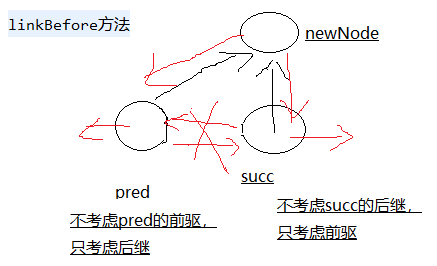

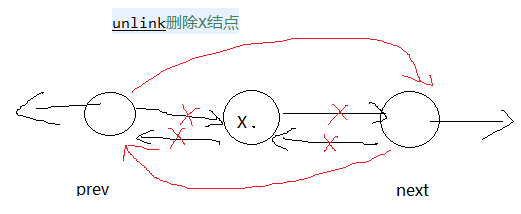
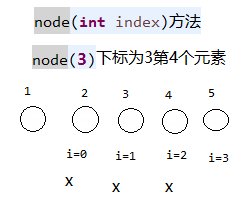
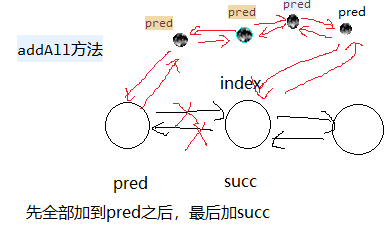
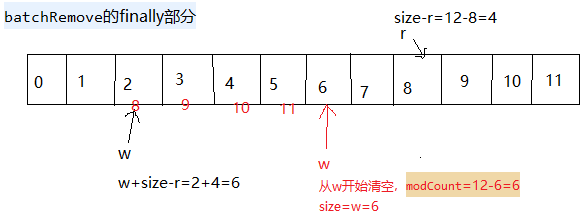





 浙公网安备 33010602011771号
浙公网安备 33010602011771号